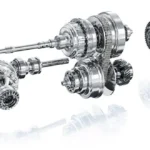
10 Common Car Problems You Can Diagnose Without A Mechanic
Introduction
Car problems can be frustrating, but not all issues require a trip to the mechanic. In fact, there are several common car problems that you can diagnose and possibly fix on your own. By understanding the symptoms and taking the necessary steps, you can save time and money. In this article, we will discuss ten common car problems that you can diagnose without a mechanic.
1. Dead Battery
If your car won’t start and you hear a clicking sound when turning the key, it could be a dead battery. You can use a multimeter to check the voltage of your battery. If it reads below 12.4 volts, it may need to be replaced. Jump-starting the car or using a battery charger can help get you back on the road.
2. Overheating
An overheating engine can lead to serious damage if not addressed promptly. If you notice the temperature gauge rising or steam coming from under the hood, pull over and turn off the engine. Check the coolant level and look for any leaks. Adding coolant or fixing a leak may resolve the issue. However, if the problem persists, it’s best to seek professional help.
3. Check Engine Light
The check engine light can indicate a variety of issues, ranging from a loose gas cap to a faulty sensor. To diagnose the problem, you can use an OBD-II scanner to retrieve the trouble codes. These codes can provide clues about the specific problem, allowing you to decide whether it’s something you can fix yourself or if it requires a mechanic’s expertise.
4. Squeaky Brakes
If you hear a high-pitched squeaking noise when applying the brakes, it’s likely due to worn-out brake pads. Inspect the brake pads for thickness and replace them if necessary. This simple fix can prevent further damage to the brake system and ensure your safety on the road.
5. Vibrating Steering Wheel
A vibrating steering wheel can be a sign of an unbalanced tire or a problem with the suspension system. Check the tire pressure and inspect the tires for any damage. If the problem persists, it may be necessary to have the tires balanced or the suspension components checked by a professional.
6. Noisy Engine
If your engine is making unusual noises, such as knocking or clicking sounds, it could indicate a problem with the internal components. Check the oil level and quality, as low or dirty oil can contribute to engine noise. If the noise persists, it’s best to have a mechanic inspect the engine to prevent further damage.
7. Electrical Issues
If you’re experiencing electrical problems, such as a malfunctioning power window or a dead radio, check the fuses. A blown fuse can often be replaced easily and solve the problem. However, if the fuse continues to blow, there may be an underlying electrical issue that requires professional attention.
8. Stalling
If your car stalls while driving or at idle, it could be due to a variety of reasons, such as a clogged fuel filter or a faulty sensor. Check the air filter and fuel filter for any clogs or debris. If the problem persists, it’s best to consult a mechanic to diagnose and fix the issue.
9. Strange Smells
Unusual smells coming from your car can indicate potential problems. A burning smell could be due to an overheating engine or worn-out brakes. A sweet smell may indicate a coolant leak. Pay attention to any strange odors and investigate the source to determine if further action is needed.
10. Transmission Issues
If you’re experiencing problems with shifting gears or notice a delay in acceleration, it could be a transmission issue. Check the transmission fluid level and condition. Low or contaminated fluid can cause transmission problems. If the fluid is low, you can try adding more, but if the problem persists, it’s best to consult a mechanic.
Conclusion
While some car problems require professional help, there are many common issues that you can diagnose without a mechanic. By understanding the symptoms and taking the necessary steps, you can potentially save time and money. However, it’s important to remember that if you’re unsure or if the problem persists, it’s always best to seek professional assistance to avoid further damage to your vehicle.




